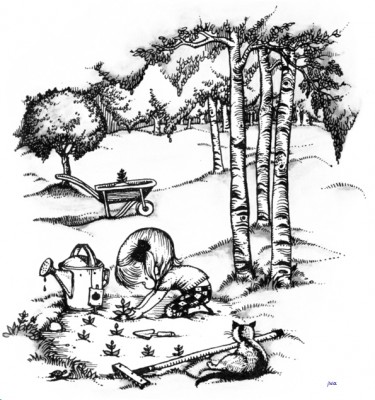Love does not behave itself unseemly: NT:808 aschemosune (as-kay-mos-oo’-nay); from NT:809; an indecency; by implication, the pudenda: KJV – shame, that which is unseemly. NT:809 askemon (as-kay’-mone); from NT:1 (as a negative particle) and a presumed derivative of NT:2192 (in the sense of its congener NT:4976); properly, shapeless, i.e. (figuratively) inelegant: KJV – uncomely.
Another scripture where the word unseemly is used is: “And likewise also the men, leaving the natural use of the woman, burned in their lust one toward another; men with men working that which is unseemly, and receiving in themselves that recompence of their error which was meet” (Rom. 1:27). We must think about teaching appropriateness, suitable behavior, decency, modesty, and practice these things ourselves, not only in front of our children but also when we think they’re not looking. Is it rational that we buy them unseemly, immodest underwear and nightwear and expect them not to want to wear the same skimpy clothing in public? If children are allowed to parade naked in front of us or each other, how can they be protected from incestuous behavior? Our example matters! Are we careful to consider what is beautiful to all men without being concerned for their praise?
Seeketh not her own: Mothers, of all people, are called upon to practice unselfishness. This not only fulfills our children’s needs at the time, but will teach them unselfishness through example (mostly a work in progress). As a mother who is learning more unselfishness, we may find this to be one of the greatest benefits of motherhood. Also it can be one of the most despised and discarded of character traits if we are not careful. We must give up our own pleasure and often our own needs in order to provide for and nurture our children. We don’t need to feel “put upon” to have to spend time with our children, or always looking for ways to take a break. Let me step on toes here: Why do you suppose Mother’s Morning Out is being implemented in many congregations? What about mothers who seek frequent babysitting or daycare? Does true love say, “I love you honey, but I can’t stand your company. I need a break from you?”
Children were not born to be convenient. They were born to be loved and trained. We can either shun this opportunity for our own spiritual growth or embrace it. Of course, this does not imply that asking for help when we need it is timid, cowardly or feeble. We can and must work on our tolerance level, but if we need an occasional helping hand, taking a break can help us do a better job later on. Even bird pairs share the care and feeding of little birds until they have flown. The idea or the motivation behind the break is the key, and our goal should be to increase our tolerance and strength to where we need relief less and less often.

